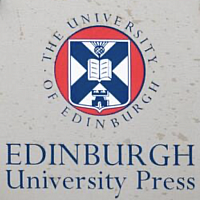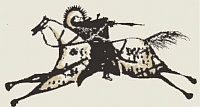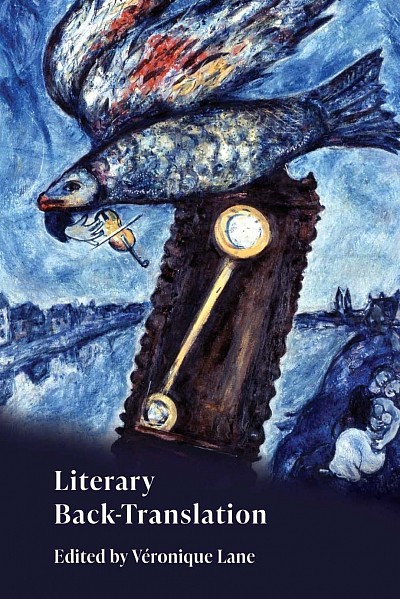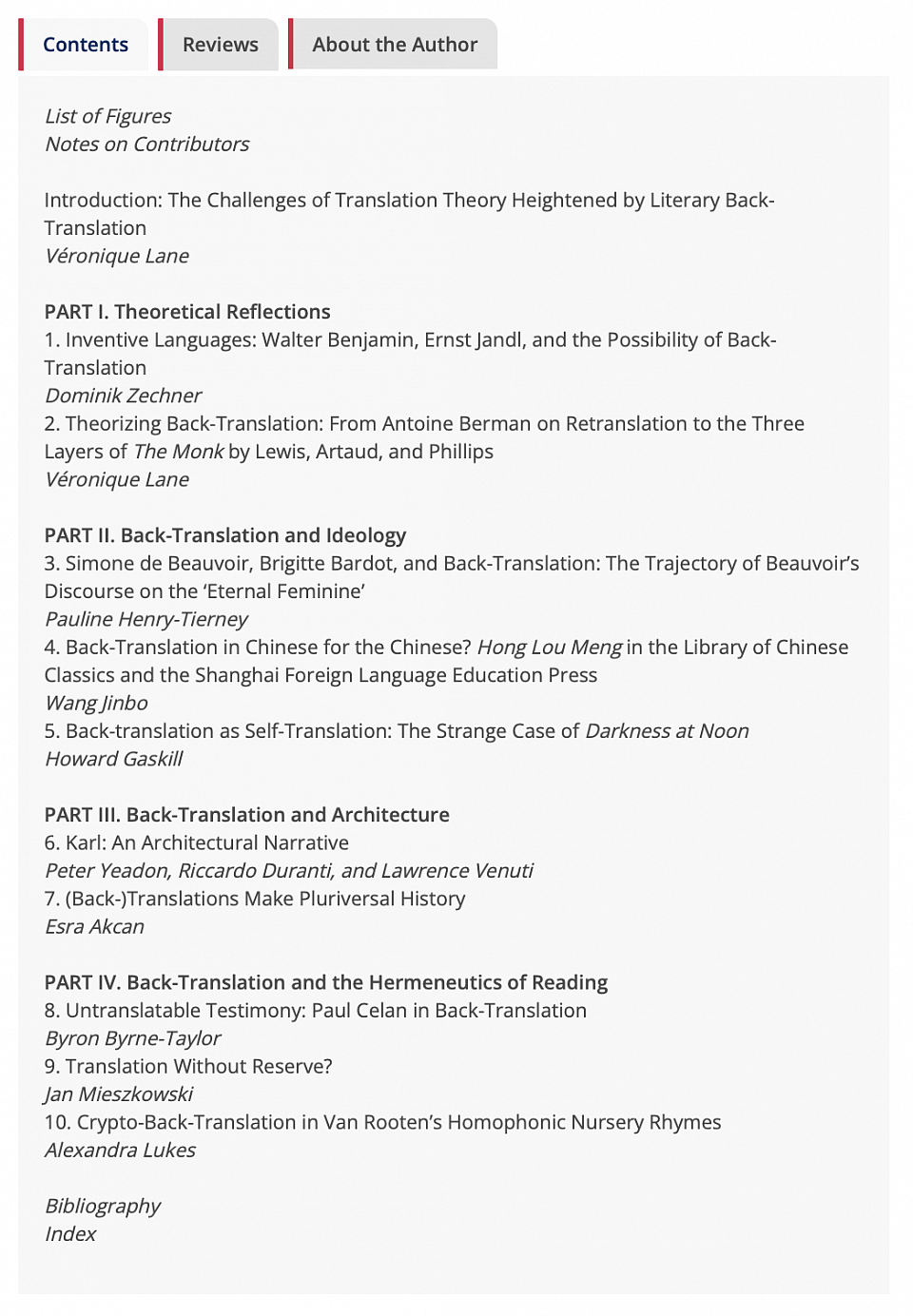About the book
Literary Back-Translation
Walter Benjamin famously warned against translating translations. Yet, literary back-translations are increasingly published: translations of literary texts are thus made accessible in the source language to their initial audience.
This book argues that the malaise generated by literary back-translations is their very promise, as it transforms our conception of translation itself!
If translations are literary works in their own right, then, they are also worthy of translation.
Questioning our discomfort with back-translation helps unravel what it is exactly that instinctively pushes us to prefer the first iteration of a text: could it be that the marginal status of translations has less to do with our refusal to perceive them as literary texts in their own right than with how we conceive translation as a process with a clear point of departure and destination; that our reverence for "originals" hides a rather limiting instinctive tendency that leads us to approach literature and translation teleologically, unilinearly?
Literary back-translation reveals translation as much less teleological a process than assumed, a process that should no longer be understood as a balance of forces seeking “restitution” – as if such a thing were even possible – but as a way to enable literary works to travel in both directions, with no preconceived trajectory...
Key features
· The first book on literary back-translation.
· An introduction theorizing literary back-translation, distinguishing it from retranslation and indirect translation, and delineating its historical, political, ethical, and philosophical implications for authors, translators, publishers and readers.
· Chapters providing close textual analyses of poems and texts back-translated into several languages including Turkish and Chinese, by a dozen authors, from Artaud, Beauvoir, Celan, Koestler and Cao Xueqín, to Benjamin and Derrida.
· A book that not only works with - but also contributes to - several methodological approaches: women and gender studies, postcolonial studies, material history, poetry, hermeneutics, AI translation, film, photography, and architecture. For literary back-translation impacts how these fields, too, can be approached differently.
The book
“Homing in on what may seem a marginal phenomenon, this thought-provoking book theorizes literary back-translation, questions the directionality of translation, and offers case studies probing into the ideological underpinnings of all translating, including indirect translation and retranslation.” (Theo Hermans, Emeritus Professor, University College London)
“This volume on literary back-translation contributes provocatively to our understanding of what translation is and does. From the Chinese classic Dream of Red Chamber to the poetry and translations of Paul Celan, this collection shows readers how back-translation works.” (Thomas O. Beebee, Professor and Editor of the journal Comparative Literature, Penn State University)
Walter Benjamin famously warned against translating translations. Yet, literary back-translations are increasingly published: whether commissioned by publishers to make celebrated translations of literary texts accessible to their initial readership, or sponsored by nations and feminist groups working for the cultural reappropriation of texts that first appeared in translation, back-translations are becoming more and more common. This book argues that the very malaise they generate is their promise: literary back-translations transform our conception of translation itself, through the recognition that translations are literary works in their own right and, as such, also worthy of an afterlife. It thus responds to Maria Timoczko’s call for new approaches enlarging translation, conceptually as well as ideologically. Literary back-translation reveals translation as much less teleological a process than we have tended to assume, a process that should no longer be understood as a balance of forces seeking “restitution” – as if it were possible – but as a way to enable literary works to travel in both directions, with no preconceived trajectory.
Cover image: Marc Chagall, Time is a River Without Banks (c. 1930). Comité Marc Chagall © ADAGP Paris and DACS London, 2025
Edited by Véronique Lane, Lecturer in Comparative Literature and Medical Humanities at Lancaster University, UK. She has edited two collections of essays on literary genealogies and translation for L'Esprit Créateur (2018) and Translation and Literature (2020), and is the author of Literary Translation and Mental Health (also forthcoming from Edinburgh University Press).





